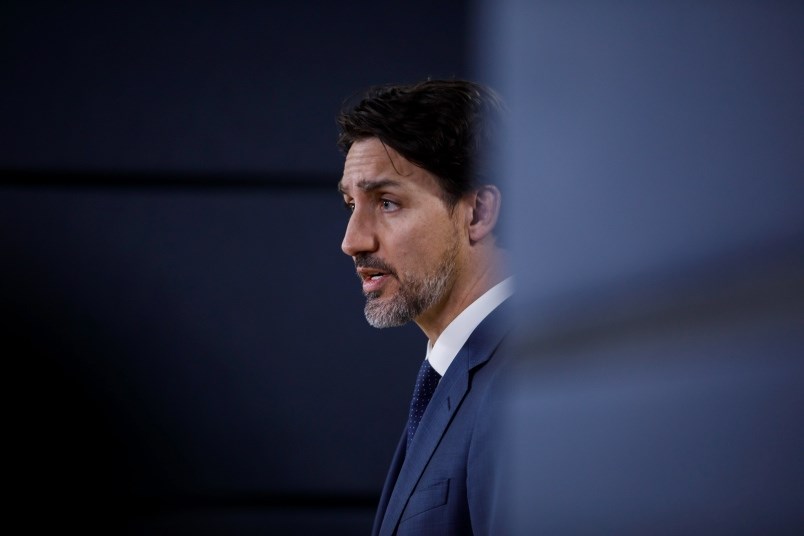The federal government says it’s working with provinces to cover 50% of commercial rent for small businesses under financial pressure amid the COVID-19 pandemic.
Prime Minister Justin Trudeau said Wednesday (May 20) the previously announced Canada Emergency Commercial Rent Assistant Program begins accepting applications May 25.
While Ottawa and the provinces will cover half the cost of rent for eligible businesses, landlords will have to absorb 25% and the prime minister said he expects small businesses to tap other federal programs to cover the remaining 25%.
“If our economy is to come back, we need a large number of those businesses to hold on and make it through this pandemic,” Trudeau said during his daily media briefing outside his home in Ottawa.
He specifically referred to the Canada Emergency Business Account (CEBA) as a means for small businesses to cover the remainder of rent.
CEBA allows banks to offer $40,000 loans guaranteed by government to eligible businesses that will come interest-free for the first year.
Under certain conditions, $10,000 of the loan will be forgivable.
The federal government expanded eligibility for the program Tuesday, allowing applications from businesses with sole ownerships, those that rely on contractors and family businesses that pay through dividends.
When pressed on why the federal government is requiring landlords to absorb 25% of the cost rather than provide direct relief to tenants, Trudeau said it was imperative for landlords to be involved in the program and economic recovery will be slower if businesses close up shop.
“With many people discovering we can work from home to a much greater degree, there may be a lot of vacancies in commercial buildings in the coming months and years,” Trudeau said. “Who knows exactly what the post-pandemic world will look like exactly and that’s why making sure we’re supporting the businesses we have now to be able to stay in their spaces as we slowly restore our economy is going to be important and we certainly expect landlords to be part of this solution.”
The prime minister noted another business program, the Large Employer Emergency Financing Facility (LEEF), from businesses with at least $300 million in annual revenue.
Applicants must be seeking minimum loans of $60 million to keep their operations afloat during the pandemic, but the financing is not permitted to be used to resolve insolvencies or restructure firms.
Companies convicted of tax evasion will not qualify and companies must share their complete financial structure as they apply for funding.
The program will have limits on dividends, share buy-backs and executive pay, and the government said it will be reviewing companies’ international organizational structure when determining eligibility.
Companies applying for the program will be required to publish annual climate-related disclosure reports and detail how their future operations will support national climate goals.
Meanwhile, the prime minister also fielded a stream of questions about the status of sittings in the House of Commons, which the pandemic has reduced significantly.
“There’s a lot of interest in a hybrid parliament model,” Trudeau said, referring to a mix of parliamentarians sitting in person and virtually.
He said the hybrid model would allow MPs from all parts of the country to participate.



